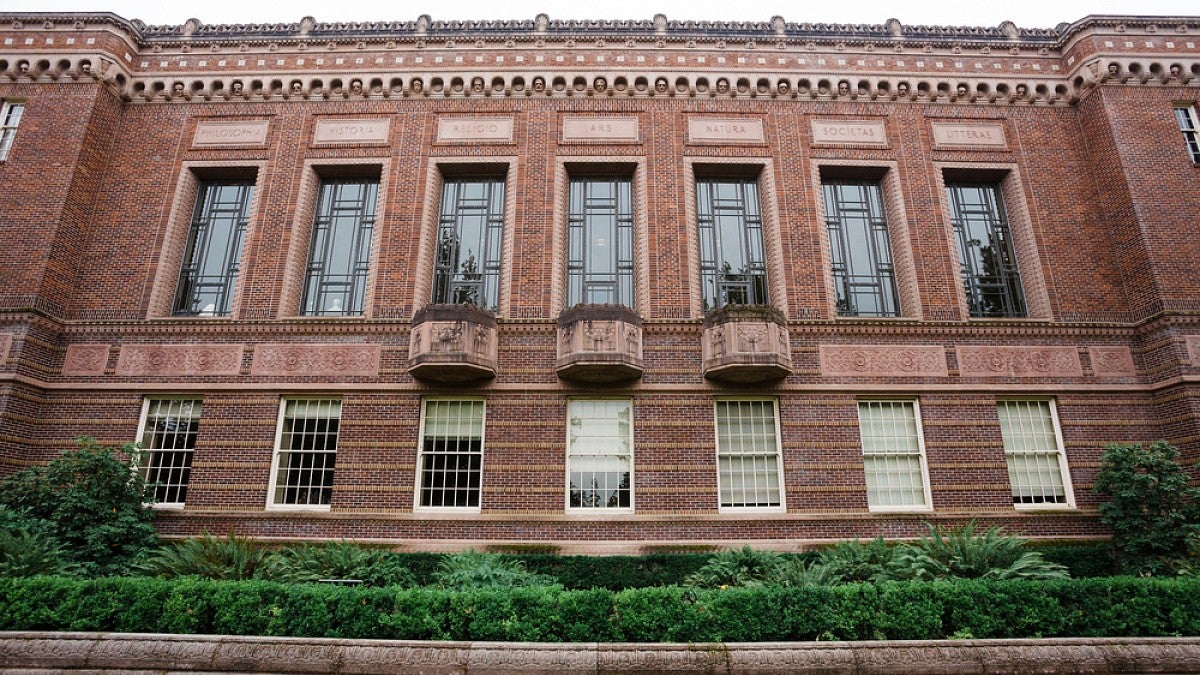With the University of Oregon’s current access to Elsevier journals set to expire at year’s end, the UO Libraries, in coordination with the university libraries of Oregon State University and Portland State University, are entering into contract negotiations for continued access in 2023 and beyond.
“The outcome of this negotiation has the potential to impact faculty and students across disciplines,” said Alicia Salaz, vice provost and university librarian. “We’d like to go into this negotiation as a unified university community, an academic community, and feel confident that we’re representing our faculty and students’ interests. That’s why we really want to hear from any member of our community with a stake.”
UO Libraries has launched a webpage with further information, resources and a link to an online feedback form.
The world’s largest academic publisher, Netherlands-based Elsevier specializes in scientific, technical and medical material. The company owns more than 2,500 scholarly journals, including major titles like The Lancet and Cell.
Elsevier has been involved in a number of high-stakes negotiations with the academic community over recent years. In 2019, the University of California system famously suspended its discussions with the publisher over its high prices and 40 percent profit margins. The parties came to a new agreement in 2021.
Like many academic libraries and consortia across the United States, Salaz explained that the three Oregon libraries would be guided in their negotiations by core principles for publisher contracts set forth by the MIT Libraries.
“In addition to supporting authors and advancing open access, all three institutions would like to reduce our spend with Elsevier,” she said, explaining that the current aggregate cost of the three campus’ access to Elsevier journals is $2.5 million.
The UO’s share in that cost represents the university’s largest publisher contract and a significant strain on the UO Libraries’ budget.
“That’s money we need to be investing in open scholarship and open data to meet the needs of a modern research university and align with the priorities of our academic communities,” Salaz said, highlighting opportunity cost.
“Open access scholarship has transformed the scholarly communications landscape since our last major negotiation in 2014,” she said. “Over 50 percent of Cell Press articles are open and free to read on publication now, with 100 percent of them free to read after 12 months, but our subscription price continues to climb, year after year. Does this represent a fair deal for us? I don’t think so.”
Salaz also explained that the policy environment has become more favorable, making now a good time to pursue a negotiation.
“Federal policymaking is trending towards greater regulatory support of open public access to the products of publicly funded research,” she said. “In the next few years, we expect to see stronger moves from federal agencies and funders to make open, embargo-free access to publicly funded research the rule, giving us even less reason to pay exorbitant sums to access papers and data.”
Ideally, the libraries’ negotiations with Elsevier will begin in late spring and conclude by the end of summer in 2022, with a start date for a new contract in January 2023.
“We very much want to come to a fair agreement that supports our UO scholars,” Salaz insisted. “It’s also in Elsevier’s long-term interest, if not their short-term interest, to work with us in good faith. We have seen negotiations between Elsevier and other institutions break down. That is not what we want to see here, but we also want to speak with a clear, unified voice on this matter: our faculty, students and the public deserve a better deal.”
—By Jason Stone, University Communications


